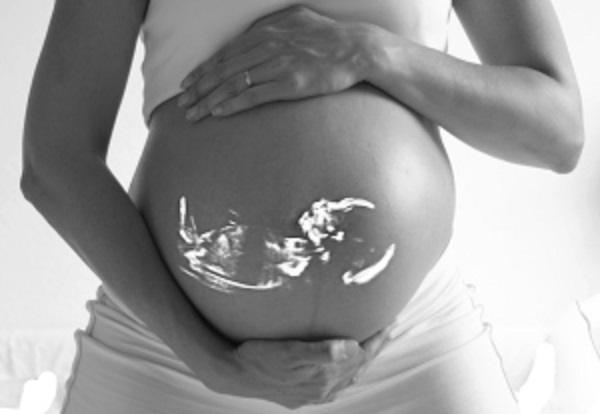Last Tuesday, the Ohio state legislature gave final approve to legislation that would ban all abortions after an unborn baby’s heart begins to beat. An unborn child’s heart begins to beat at 22 days after conception or earlier.
As the Ohio legislature considers bills in the last days of lame duck session before the year’s end, significant amendments are being added to various laws to pass additional legislation. Yesterday, the Ohio Senate added Ohio’s Unborn Heartbeat Protection bill, which has been before the legislature for several years, as an amendment to House Bill 493 child abuse reporting law. The Senate has approved H.B. 493 with Heartbeat protection amendment 21-10.
Following that vote, the Ohio General Assembly approved the bill 56-39 and H.B. 493 with the heartbeat protection amendment now goes to pro-life Governor John Kasich for his potential signature.
In adding the pro-life measure to a health bill aimed at preventing child abuse and requirements for reporting of neglect by healthcare providers, state Rep. Kristina Roegner said it made sense to combine the two.
“They are both about protecting children, both the born and unborn,” Roegner said. “Today we can take a stand. We can stand up for the most innocent among us, the unborn. Today in Ohio, we put an end to the practice of killing babies while they’re still in the mother’s womb.”
There is a chance Kasich will have two abortion bills to consider next week, the Heartbeat bill and another measure that would ban all abortions after 20 weeks — which the legislature will soon approve.
One Ohio pro-life group was elated by the developments.
Click here to sign up for pro-life news alerts from LifeNews.com
“Cincinnati Right to Life, the entire statewide Ohio pro-life coalition, and all else who have supported the Unborn Heartbeat Protection bill the past several years thanks and congratulates the Ohio Senate on this momentous vote,” said Paula Westwood, Executive Director, Right to Life of Greater Cincinnati. “We look forward to passage of H.B. 493 with Heartbeat protection amendment in the Ohio House, and Governor Kasich’s immediate support.”
But Ohio Right to Life President Mike Gonidakis said pro-life people need to “be realistic” that the Heartbeat bill will undoubtedly not survive an expected court challenge if signed into law.
Republican Sens. Bill Seitz and Bill Coley were among the three Republicans who voted against the bill.
“The sad reality of this bill passing will be that we spend millions of taxpayer dollars on attorney fees for a bill that has zero chance of becoming law,” said Coley. “My biggest fear is that some of the great work that we have done in protecting life here in Ohio will be jeopardized.”
Looking at North Dakota’s bill, a federal appeals court overturned the law in 2014. The Eighth Circuit Court of Appeals said the following about their ruling on the six-week ban: “Because there is no genuine dispute that (North Dakota’s law) generally prohibits abortions before viability — as the Supreme Court has defined that concept — and because we are bound by Supreme Court precedent holding that states may not prohibit pre-viability abortions, we must affirm the district court’s grant of summary judgment to the plaintiffs.”
A U.S. Supreme Court decision against the law in January was not surprising given the high court still has a pro-abortion majority that supports Roe v. Wade, which allows virtually unlimited abortions throughout pregnancy and essentially prevents states from protecting most unborn children.
The North Dakota and other states’ heartbeat laws are controversial even among some pro-lifers, not because they oppose banning abortions but because they believed that it would be overturned and the state would be forced to pay abortion activists’ legal costs. Such groups are working to change the courts so Roe can be overturned and legislation like the Heartbeat bill and others can be approved to provide legal protection for unborn children.
However, should the pro-life measure be signed into law, the legislation would likely be struck down in court as has been the case and two other states — Arkansas and North Dakota.








